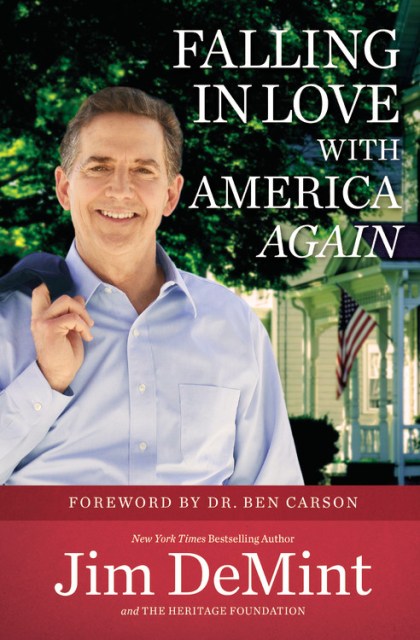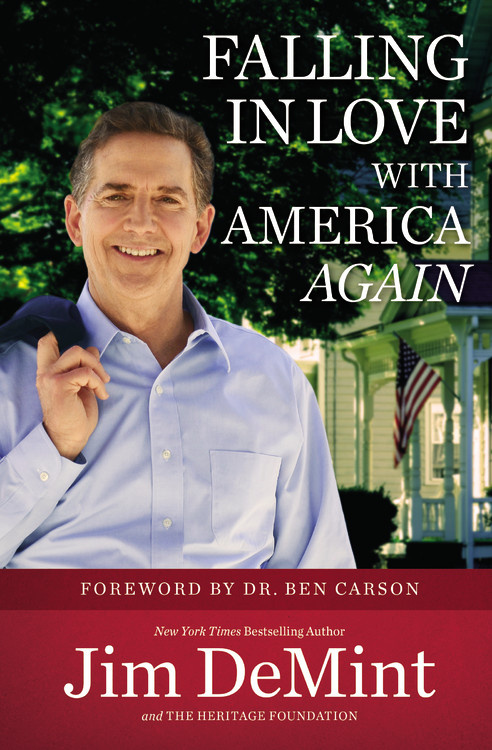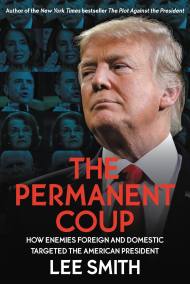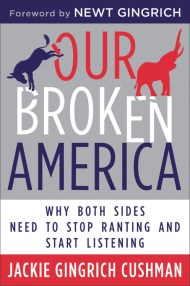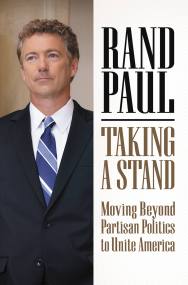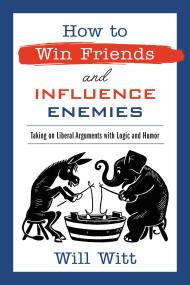By clicking “Accept,” you agree to the use of cookies and similar technologies on your device as set forth in our Cookie Policy and our Privacy Policy. Please note that certain cookies are essential for this website to function properly and do not require user consent to be deployed.
Falling in Love with America Again
Contributors
Foreword by Ben Carson
Formats and Prices
- On Sale
- Jan 13, 2015
- Page Count
- 320 pages
- Publisher
- Center Street
- ISBN-13
- 9781455549825
Price
$21.99Price
$28.99 CADFormat
Format:
Trade Paperback $21.99 $28.99 CADThis item is a preorder. Your payment method will be charged immediately, and the product is expected to ship on or around January 13, 2015. This date is subject to change due to shipping delays beyond our control.
Buy from Other Retailers:
Serving within the supposed pinnacles of power as a respected and influential U.S. Senator from South Carolina, Jim DeMint often felt frustrated and powerless to fight against the frightening growth of the federal bureaucracy and refute the mistaken idea that ever-bigger government is the solution to the nation’s problems.
In his new role as president and CEO of The Heritage Foundation, Jim DeMint has taken on the daunting responsibility of helping to lead Americans themselves to change their country’s course, of redirecting us back to our founding principles and restoring and protecting our economy and culture for future generations. He realized that he – and all of us as fellow citizens – must fall in love with America – again.
In this book, DeMint illustrates why Americans must rediscover the power, ingenuity and creativity of our little platoons. He then introduces Americans all across the country whose patriotism was nurtured in exactly the same way, recounting example after example of how they’re working together locally in what he calls the “little platoons” – the families, churches, communities and voluntary organizations succeeding on the model that smaller is better. They are the hands-on citizens who make America the exceptional, caring and can-do country it has always been.
DeMint illustrates why each of us – regardless of political party, age, race, religion or ethnicity – must rediscover the power we represent. The country’s future is at risk, not just because of constant pressure from “the Bigs” (big government, big banks, big labor, big Wall Street cronies etc.), but because so many of us fear it’s too late to solve problems so huge and seemingly intractable. Jim DeMint is here to reassure us that this is not true.
In riveting yet plainspoken style, he tells real-life success stories and educates us via logical, historical and fact-based explanations of the issues (education, taxation, regulation, poverty, labor, health-care, environmentalism, Federalism and more). He affirms the compelling truth that conservative ideas are really American ideas, and they must guide us as we turn our institutions upside-down, taking them from the top-down centrally-controlled bureaucracies they’ve become back to the bottom-up democratic framework the Constitution intended.
Through this heartfelt, fascinating and inspiring look inside the America of both yesterday and today, and the everyday citizens who are working tirelessly and selflessly to insure its future fulfills the promise of its beginnings, Jim DeMint is beckoning us to join him on one of the most meaningful and momentous journeys we have ever undertaken together: FALLING IN LOVE WITH AMERICA AGAIN.
Newsletter Signup
By clicking ‘Sign Up,’ I acknowledge that I have read and agree to Hachette Book Group’s Privacy Policy and Terms of Use
